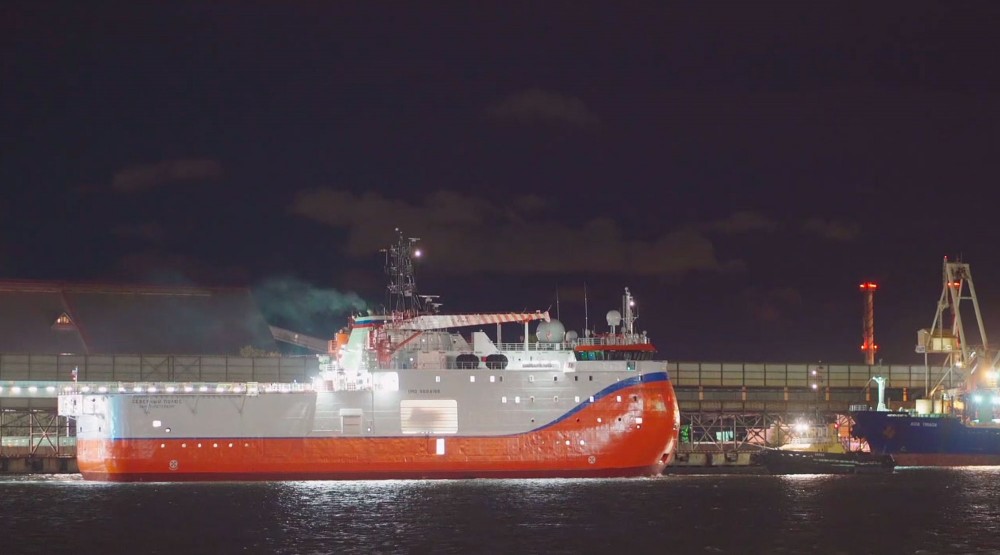North Pole research vessel embarks on first voyage to the Arctic
The Russian research platform, which can drift autonomously for up to two years in thick Arctic sea ice, is on its way to Murmansk as part of its first voyage to the North.

The Russian research vessel North Pole, or Severny Polyus, began its first voyage on Friday, setting out for Murmansk from St. Peterburg.
It will soon become a key tool in Russian Arctic research.
The unique 83-meter-long vessel has been under construction at the Admiralty Yard for the past two years. The Severny Polyus, which its constructors describe as a “platform,” is the shape of a bathtub.
It is due to arrive in Murmansk on September 15. Shortly afterward, the platform will embark on a voyage to the New Siberian Islands, according to the Russian Minister of Natural Resources Aleksandr Kozlov.
“Already in the near future, we will have reliable and full information about the North Pole of our planet,” the minister says.
The Severny Polyus is capable of undertaking geological, acoustic, geophysical and marine research under the harshest of Arctic conditions. Even in temperatures down to minus 50°C (-58°F) it is believed to be able to provide comfortable living and working conditions for researchers and crew.
Researchers can work year-round in 15 labs on board.
During this year’s expedition, the vessel will test its key equipment.
The first real expedition will start in 2023 when the Severny Polyus will sail into Arctic waters for a two-year expedition. The ship is designed to be able to drift uninterruptedly with the Arctic currents for two years.
“The ice platform is our country’s contribution to the development of the Arctic,” Minister Kozlov said in early 2022.
When Russia took over the presidency of the Arctic Council in 2021, its representatives highlighted the Severny Polyus as one of its major contributions and emphasized that international researchers would be invited on the first tour.
The Severny Polyus platform will replace Russia’s Arctic expeditions based on ice floes organized since the 1930s. The quickly vanishing Arctic sea ice has made it increasingly hard to conduct the expeditions and the last real ice station, the North Pole 40, was held in the winter of 2012.